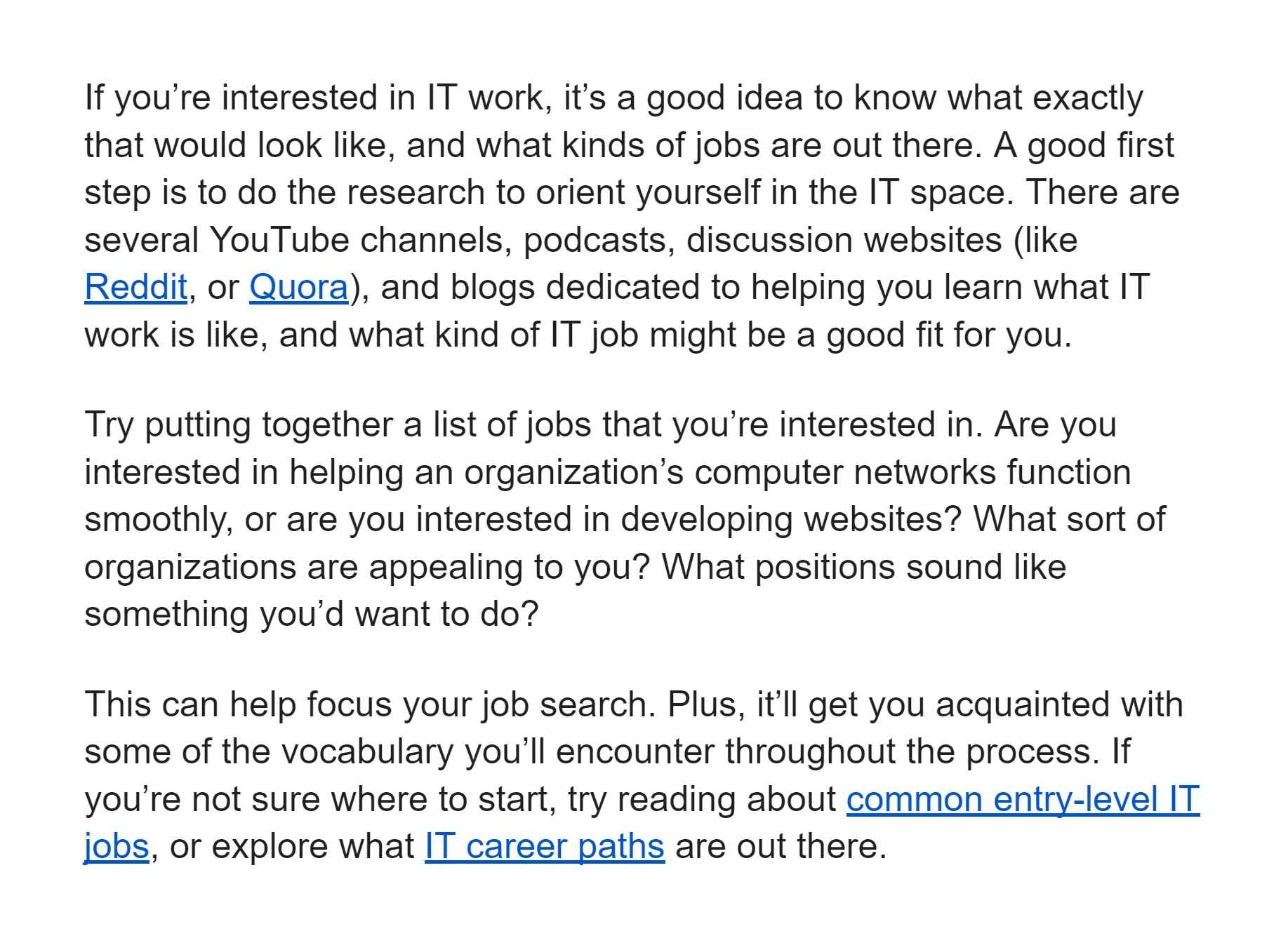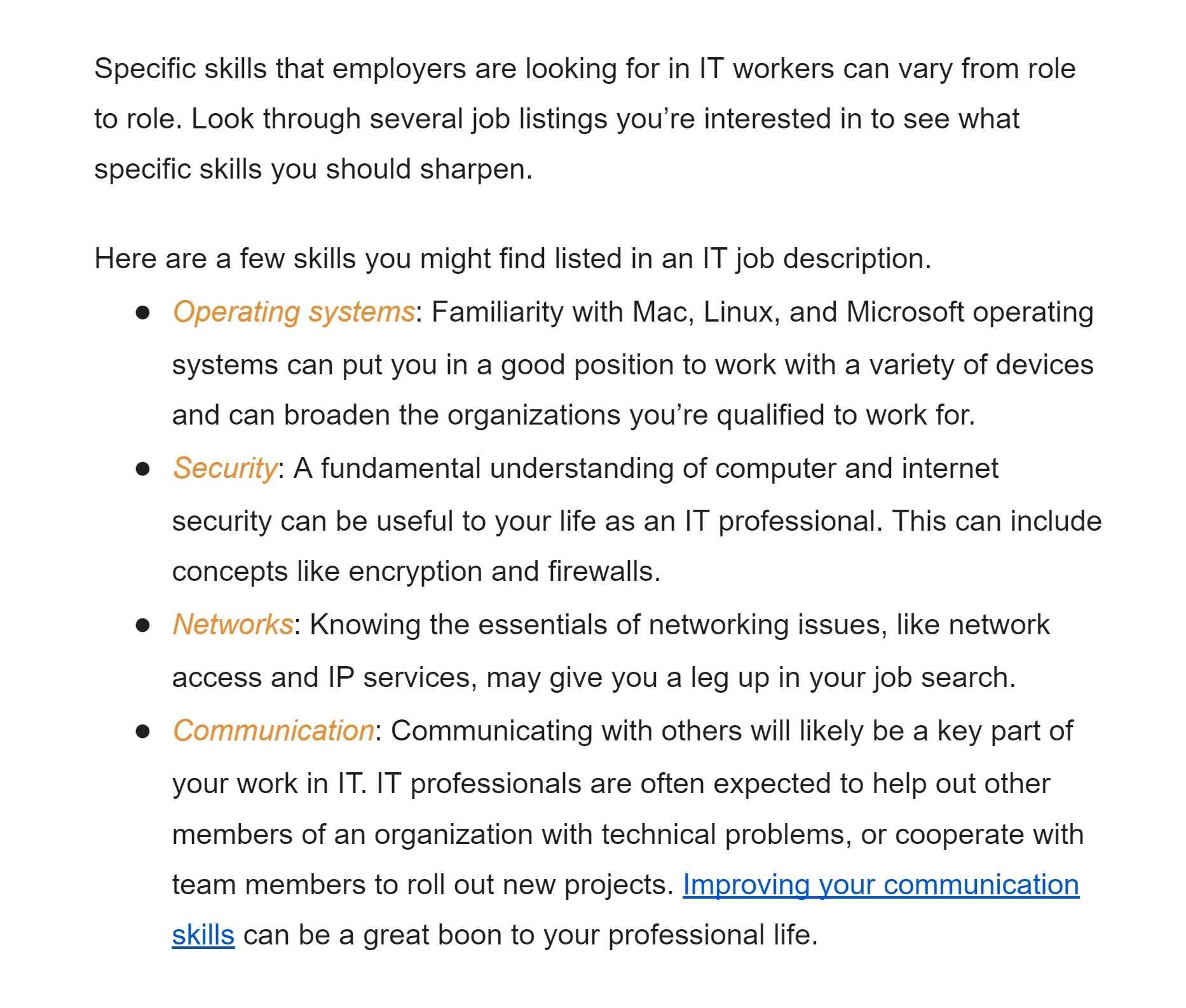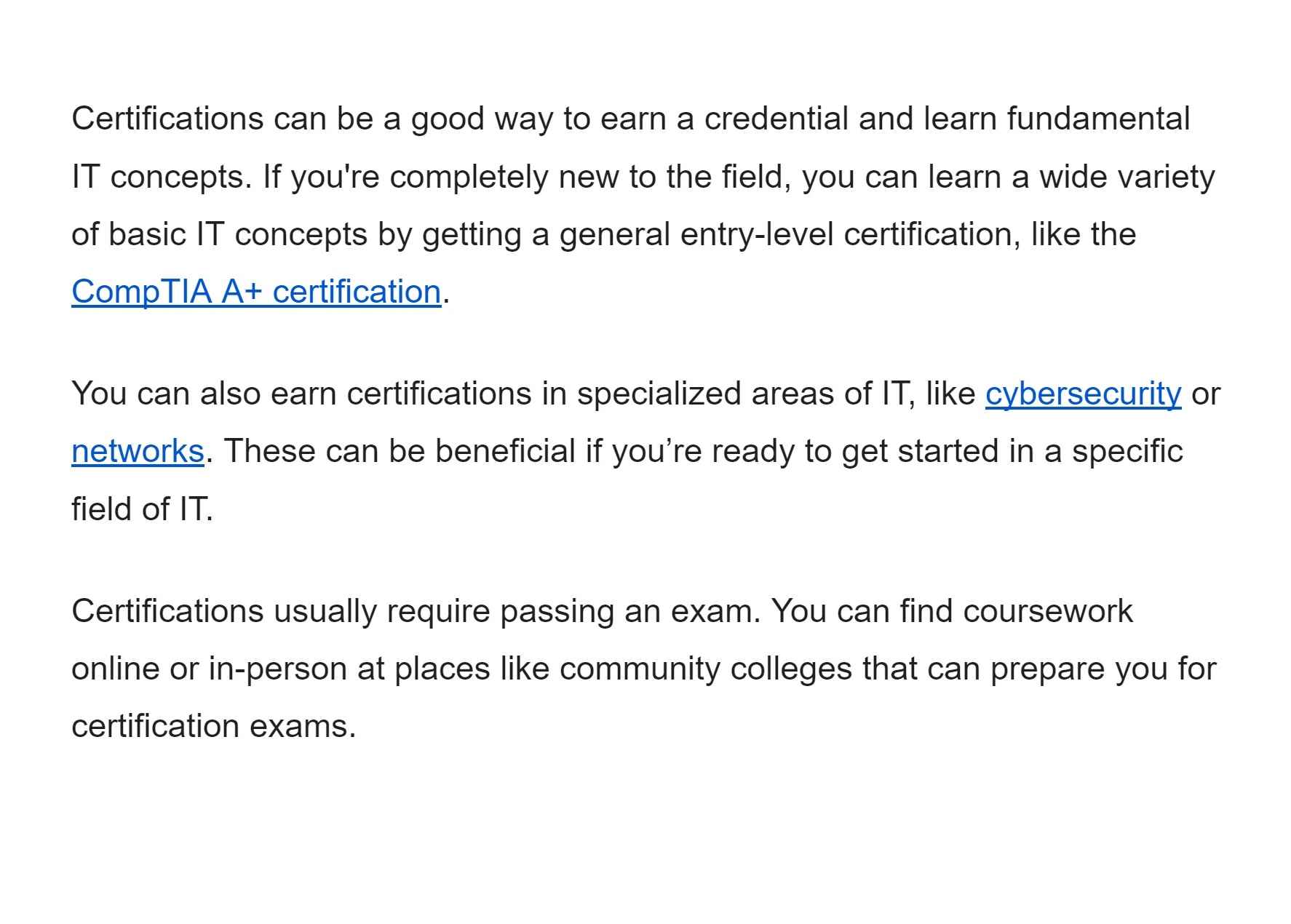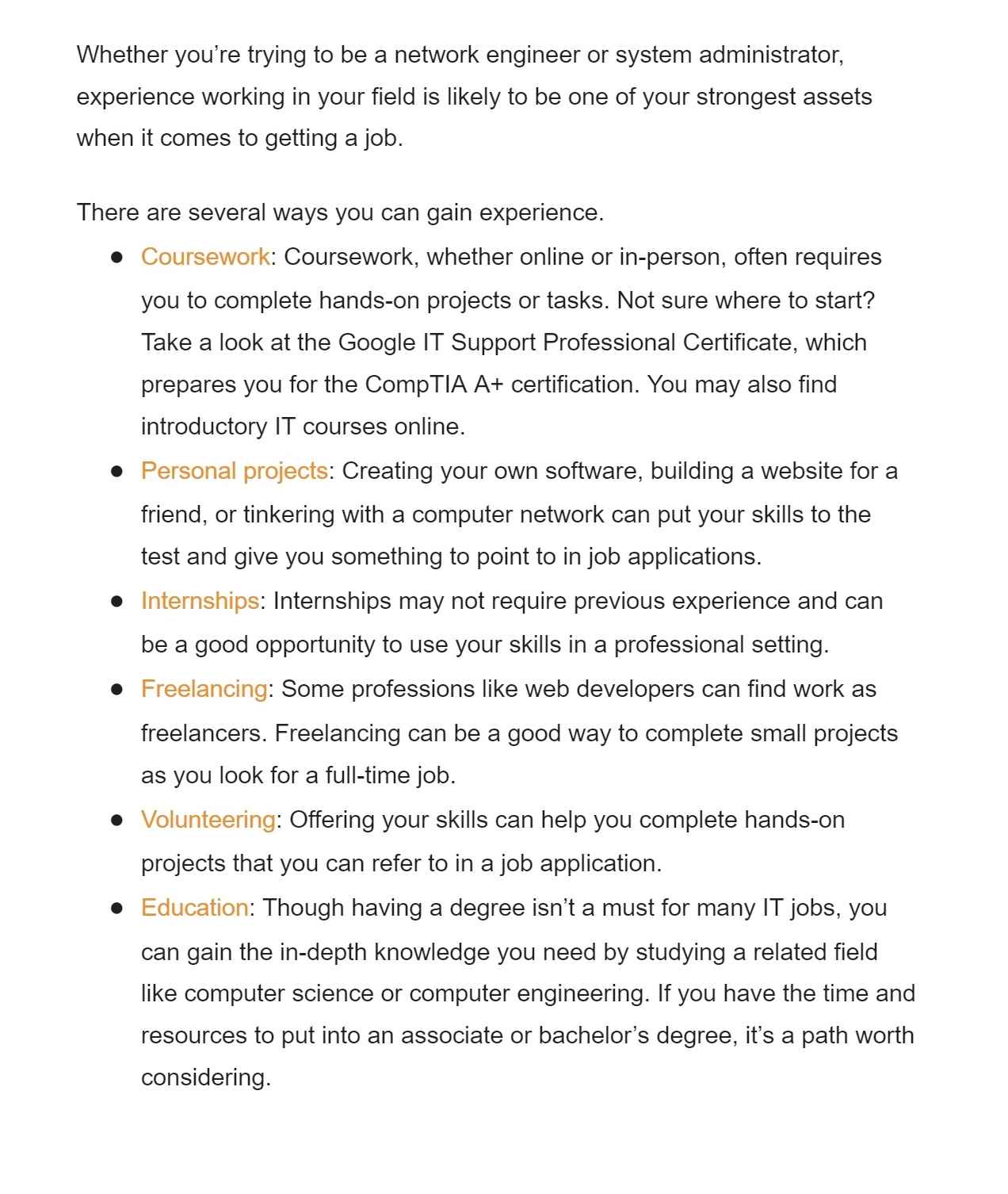15 Entry-Level IT jobs and How to Get Hired With No Experience

What are entry-level IT jobs, and how do you get hired? Entry-level occupations are those that demand less experience and responsibility. Entry-level employees usually receive training from more senior employees or participate in a professional on-the-job training program.
Computer software, hardware, data storage/retrieval, and computer support occupations are all examples of IT employment. Information technology is a fast growing sector with several high-paying positions and opportunities for advancement. It's also one of the most remote-friendly areas.
In this post, we'll go over how to get an entry-level IT job and a few job titles to consider when starting out in this field.
What is an entry-level IT job?
An entry-level IT job demands very little to no professional experience. In IT jobs, you will gain most of the skills and knowledge, when you immediately start working for such companies. Some employers might ask for certain educational programs, internships or certifications for their entry-level IT positions. After passing out of high school or college, IT roles are available, depending on what kind of job you're looking for. Many entry-level IT jobs are the ultimate platform to gain experience and advance their job titles (get promoted) within the IT field.
How to get an entry-level IT job?
Follow these steps to get your first IT job:
1. Making a list of job titles and interests
Making a list

Source: Solveprog.com
2. Research for job demands
When searching out what types of entry-level IT jobs you want, it is important to know what each job requires from candidates. While some jobs may only need you to have a high school diploma or GED, others may require you to earn your associate's or bachelor's degree. That's why it's important to check what level of education you are willing to get. Sometimes, IT job titles may ask you to complete the training programs or earn certifications.
3. Polish relevant IT skills
Upgrade skills

Source: solvprog.com
4. Use of educational institutes resources
See if your high school or college has any career placement resources. Many IT companies reach out to schools to find recent graduates. They can also help you create your application materials, such as your cover letter and resume.
5. Get a certification
Getting a certification

Source: solvprog.com
6. Professional recommendations
If you have little to no IT experience, you may want to get some through an internship or volunteering. Along with learning some basic IT skills, you can also make important business connections through this kind of work. You may find that a company will hire you as a full-time employee if you make a good impression. Even if they don't have space to hire you, use this technique to gain referrals for your job opportunity.
7. Know your qualifications and Interests
As an entry-level candidate, employers understand that you may have a limited amount of skills and experience. When applying to IT jobs, look for ones that are looking for candidates with zero to three years of professional experience. Reflect on your other qualifications, such as your hard and soft skills, to know what jobs you might be a good fit for.
8. Create an online portfolio
One way to show that you're a qualified IT professional is by creating an online presence. You can do this by making your own IT blog, where you write about a variety of IT topics. Along with creating a blog, you could make IT videos, contribute to online forums or connect with industry leaders on social media.
9. Get prepared for interviews
Job Interviews

Source: solvprog.com
Networking and cracking interviews is the best way to get your first job and boost your confidence. You can do this by reaching out to companies for informational interviews. The main idea is that you are the one interviewing employers or employees of a company that you might be interested in working at. During this interview, they may ask you questions about the company and industry. So get well prepared with a bunch of questions and answers to be more informative and show that urge for being hired.
10. Build your experience
Experience Counts

Source: solvprog.com
15 Entry Level IT Positions
An entry-level position requires minimal related work experience in most any field. But given the variety of responsibilities you can take on as an IT worker, there are many titles in any entry-level position in IT. Here are a few entry-level roles that you can look for in your job search:
- Help desk analyst
- PC technician
- Computer operator
- Software developer
- Technical writer
- Front-end web developer
- Full-stack web developer
- Quality assurance (QA) analyst
- System administrator
- Database administrator (DBA)
- IT associate
- IT assistant
- IT support analyst
- IT support specialist
- Network associate
Tips for landing entry-level IT jobs
No matter the entry-level IT position you're seeking, the following tips can help you on the job hunt:
Depending on the area of IT you go into, I would say create a basic website of yourself and add some projects you carried out , this is as important as your cv, as an entry level student if you are lacking work experience try getting experience through online internships . Some companies hire fresh graduates but they may need to do some online tests etc. Anyway, create a plan of where you want to start and keep pushing until you find it , learn & adjust your job search with every lesson. Keep yourself active by learning or creating a project everyday.
Create something for free for a voluntary project , make contacts with relevant people and practice interview questions.